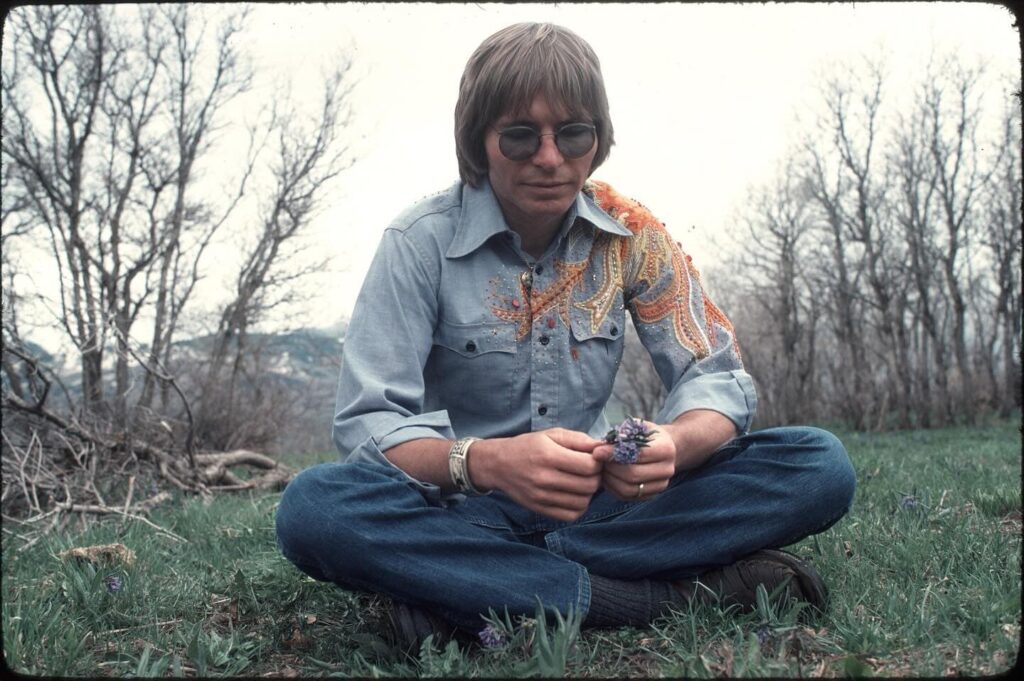
The Enduring Story of a Man, His Music, and the Grandfather Clock of Memory
“This Old Guitar” is a deeply personal and reflective ballad by John Denver, released in 1974 on his hugely successful album, Back Home Again. While the song itself was not released as a single and therefore did not register a standalone chart position on the major U.S. Billboard Hot 100 or Country charts, the album it anchored was a commercial behemoth. Back Home Again soared to Number 1 on the U.S. Billboard 200 album chart and was certified 3x Platinum, making it one of the defining records of the mid-1970s and solidifying Denver’s status as one of America’s most beloved troubadours. The song’s meaning is straightforward yet profound: a tribute to the humble instrument that served as the singer’s constant companion, mentor, and confessor through every pivotal moment of his life, from lonely nights to falling in love. It is, quite simply, an ode to the muse—a wooden testament to a lifetime of shared experiences.
For those of us who came of age with a six-string close at hand, few songs resonate with the warm, familiar hum of nostalgia quite like John Denver’s “This Old Guitar.” It’s a track that, much like an aged photograph, asks us to pause and reflect on the journey, the years that have spun out since we first strung together a few simple chords. When this song made its debut on the 1974 album Back Home Again, Denver was at the absolute peak of his commercial power. Surrounded by smash hits like “Annie’s Song” and “Thank God I’m a Country Boy” on that same record, “This Old Guitar” served as a quiet, powerful anchor—a moment of heartfelt introspection amid the celebratory anthems.
The story behind the song adds immeasurable weight to its emotional pull. The “old guitar” is, in fact, a real instrument, a vintage 1910 Gibson, arch-top model, given to him by his grandmother when he was just a boy, around the age of twelve. The gift was more than wood and wire; it was the spark that ignited the artistic fire in Henry John Deutschendorf Jr., the earnest young man who would become John Denver. As the tale goes, the guitar was later lost and then joyously rediscovered about five years before he wrote the song—a reunion so moving it inspired him to pen the lyrics, reportedly writing them on the instrument itself. This deeply personal history explains the lyric’s intimacy, the way he speaks of the guitar not as a tool, but as a living friend. “This old guitar taught me to sing a love song,” he croons, personifying the instrument with the wisdom of a seasoned companion.
What makes this track so enduring for older generations is its beautiful metaphor. The guitar, an object that ages and bears the scars of travel and use, becomes a stand-in for the listener’s own life journey. It is a symbol of stability in a world of constant motion, mirroring the decades of simple pleasures and complex heartbreaks we, too, have weathered. The lines about how the guitar “helped me make it through some lonely nights” and “brightened up some days” touch a universal truth about the power of music and companionship. It doesn’t just recall the ’70s; it recalls the feeling of having a steadfast presence—a friend—during youth, through career struggles, and in the quiet of a midnight moment. The song serves not just as a John Denver classic, but as an elegant, warm-toned mirror reflecting our own long, melodious lives. It is a humble song from a monumental album, and its honesty is precisely why it still resonates so powerfully today.